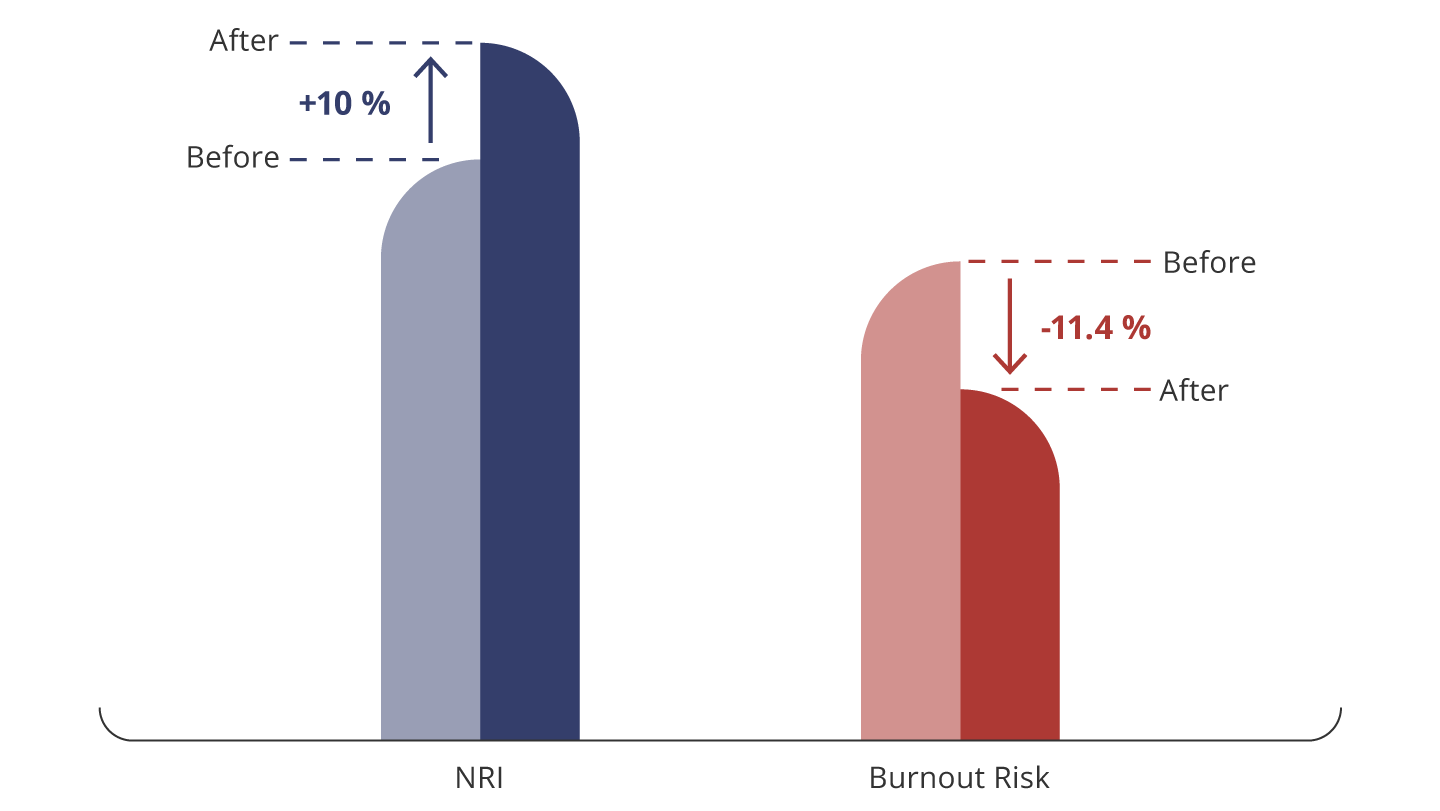Author: Tyler Phillips, Research Psychologist and Lead Content Specialist
Currently, burnout is perhaps enemy number one in the global workforce. At the beginning of 2019, the World Health Organization determined that burnout manifests seriously enough in the brain-body system to be officially classified as a medical syndrome. Then, during the height of the highly stressful COVID-19 pandemic, the rates of burnout soared. Now, in its aftermath, contrary to what we might expect, the global burden of burnout is not getting much lighter. In fact, a 2022 survey by Microsoft, covering 20 000 people across 11 countries, found that approximately half of all employees and managers are experiencing burnout. It is, in a sense, its own pandemic, and we need to find a way to protect ourselves from it.
The need for protection from burnout cannot be overstated. The syndrome is classified by experiencing:
- emotional exhaustion,
- detachment from and cynicism towards the workplace, and
- reduced efficacy at doing one’s job.
Given these symptoms, it is obviously not possible for anyone to perform highly if they are burnt out. But more than this, burnout is an outcome of experiencing (and not managing) chronic occupational stress. Chronic stress wreaks havoc on the brain-body system, predisposing a person to developing one or more of many different physical and psychological illnesses. So, protection from burnout may also mean protection from developing these knock-on conditions.
One crucial form that this protection takes, therefore, is getting better at managing stress. That, in essence, is what resilience is all about. It is the capacity to cope successfully in the face of stressors or adversity, and to learn from this coping so that encountering future stressors may be less shocking to the brain-body system. Hence, one of our core offerings at Neurozone is not only a cultivation of greater resilience, but also, as a result, a reduction to the risk for experiencing burnout.
To confirm this relationship, we turn to our own data. Taking a group of around 600 people (of a balanced gender distribution, across 18 different industries), we compared their scores on the Neurozone® Resilience Index (NRI) with their scores on our measure of burnout risk. We found the following significant relationship:
A 1-unit increase in the NRI tends to result in a 1.14-unit decrease in burnout risk. Put differently, where both measures range from 0 to 100, if an employee who, for example, initially scores 50 for resilience subsequently boosts that to 60, then their initial burnout risk score of 41.4 will likely lower to 30, based on these current findings.

This relationship confirms what other scientists propose - whether based in theory or on findings from field studies. That proposal is this: resilience is a protective factor against burnout. When you work on building your resilience, you are also building a stronger guard against an attack of the burnout syndrome. Perhaps resilience is the thing we, as a collective, need to cultivate to break out of this global burnout pandemic.